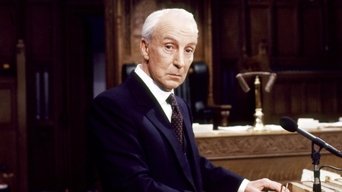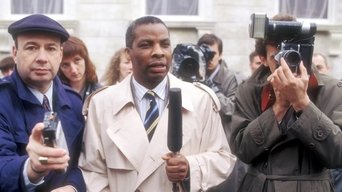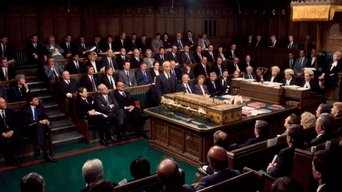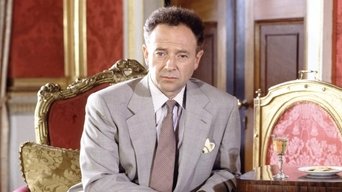gizmomogwai
To Play the King is the follow-up to the British House of Cards miniseries, the basis for the current American Netflix show House of Cards. The last time we saw Francis Urquhart, he was on his way to becoming prime minister. That poses questions of where to go from there- he no longer has a prime minister to topple. There's only one spot above the prime minister in the British system, and that's the monarchy.A new king is crowned (in real life, we haven't seen a coronation since 1952), and the new monarch intends to get involved in political matters. A liberal with sympathy for minorities and the marginalized, he is soon construed as critical of the policies of Urquhart's Conservative government and wins the public's affections. Soon, Urquhart and the king are engaged in a Machiavellian struggle for power, the king seeking Urquhart's defeat at the polls, Urquhart seeking the king's abdication.In political philosophy, I'm actually closer to the king than Urquhart. However, this is complicated, as in an age of democracy I do think a person with an inherited ceremonial title shouldn't interfere in government. I'm Canadian, and we share Britain's monarch and system. It made me angry to see a king thinking he has a right to dictate what's done in his name, dining with Opposition leaders and speaking out against government. This goes against constitutional convention- yet the concerning thing is, there isn't really much, constitutionally speaking, stopping a monarch from doing such things. While in this matter, Urquhart may have more right, of course he is no saint.House of Cards (both versions) are grim, almost ridiculously so, in having a high-stature political official not just ordering killings, but doing them with his own hands. To Play the King hasn't forgotten Mattie Storin- on the contrary, she's still very much there in spirit. Urquhart is haunted by her death and the guilt, showing he's not totally inhuman. She also becomes an obsession of Urquhart's new lover, Sarah Harding. As with the original miniseries, To Play the King is a study of realpolitik, a dark and pessimistic view of power and human nature. It's an intriguing and engaging watch, just as with its predecessor.
Spondonman
This was the follow up series to House Of Cards, continuing the rise and rise up the Greasy Pole of Francis Urquhart, good old FU to us viewer-confidantes. Or as in all of his friends opinions, a right old swine because he stops at nothing to cling on to power.FU is a UK Prime Minister with plenty of dark secrets in his murky past – just for a change – when from his wife he gets the idea of hiring a bright young woman as his "slave" to do his (political) bidding. While engaged in a running battle of wits with the earnest and wimpish ruling monarch he finds that he needs her ideas, input and eventually her sexual support too. And only natural too, for what are Men but mere slaves to the Urge? Unfortunately along with his other aide she gets too many ideas, such as what really happened to his former lover? It's all as well done as the first series, and just as predictable – but refreshing cynicism on its own isn't quite enough this time round. When it came the climax was totally foreseeable – which only made me wonder why they couldn't foresee it! Introducing people per episode, nurturing them and then killing them off was something I used to laugh at in Star Trek over 40 years ago. However, ignoring the shallow ending the plot itself was engrossing enough to keep me hooked for another four hours, and Ian Richardson's wonderfully nasty and slimy performance certainly was a masterclass.It's an entertaining time passer which also informs and educates if you need it – never ever trust any politician, or aristocrat for that matter, period.
chaos-rampant
Compared to the first House of Cards, this is a retread of familiar ground, far-fetched in spots, and fizzles out in the 'explosive' finale. It is still fun to watch, and together with Cards, a great primary text.The narrative tension arises from the fact that the protagonist—Francis Urquhart, now Prime Minister after the events of the first one—is both an actor inside the story and the capricious narrator who in telling it attempts to control that story and his environment, Lolita-wise. (which Ian Richardson has not only known, as anyone in his trade can be expected to, but actually played on the stage, in Albee's Broadway version as apparently Nabokov himself)We are roped in the story, by Urquhart making the camera a co- conspirator on his side.This could have been of more interest than the first. The issue of co- conspiratorial viewing more ambiguously rears its head here, because mixed with parliamentary intrigue, the great deceiver is beginning to show signs of doubt and remorse, but knowing him to be a demagogue, can we trust him? Is he lucidly toying with us? Do we open up? It all comes back to Lolita, the seduced younger woman, his mirrored nemesis the current Chief Whip. It is good material, a good text to work from.Alas, the same problem persists as in Cards.Urquhart's doubt grows from memories of the first film, the whole Mattie Storin affair. If you haven't seen Cards, he has done something horrible even by his standards, and tormenting visions begin to seep into and disrupt his control. Now there are two types of film when dealing with cinematic memory, mostly distinct of each other. Films where memory is a narrative device and the reminiscing self fetches the images as insight into some past story, a category of which this is a part of, and can be relied on for a good jigsaw but hardly much else. Hitchcock usually worked in this way.And films, much fewer, where true to the function of memory, images steal into the story as insight of the narrating self, images not always in the right order or logical that partly create the self. All the great films (as well as Lolita) fall in this latter category.So the narrative is clean and logical, which the British do better than anyone. The acting is fine, Richardson above all. But, there is no reason whatsoever for Urquhart to be truly confiding to the viewer, especially now that we see aspects of Urquhart he does not control. Everyone else is being lied to, uncertain and fumbling, but we are not. This is as if Lolita was just a chronicle of mischiefs, missing layers.
Clivecat
This entire BBC series is well worth watching. The screenplay is literate and hilarious. All the actors are wonderful, the script is great, and they've spared no expense with locations! This is an exciting series and I can't recommend it highly enough. Too bad in the United States we don't have actors talented enough to pull of a series such as this one. Diane Fletcher and Ian Richardson are perfect! All the actors in this were first rate and I certainly hope to see more of all of them in the future.
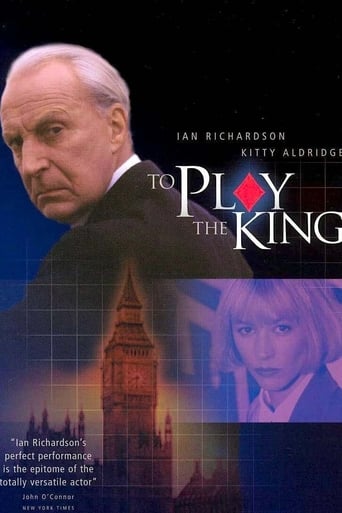
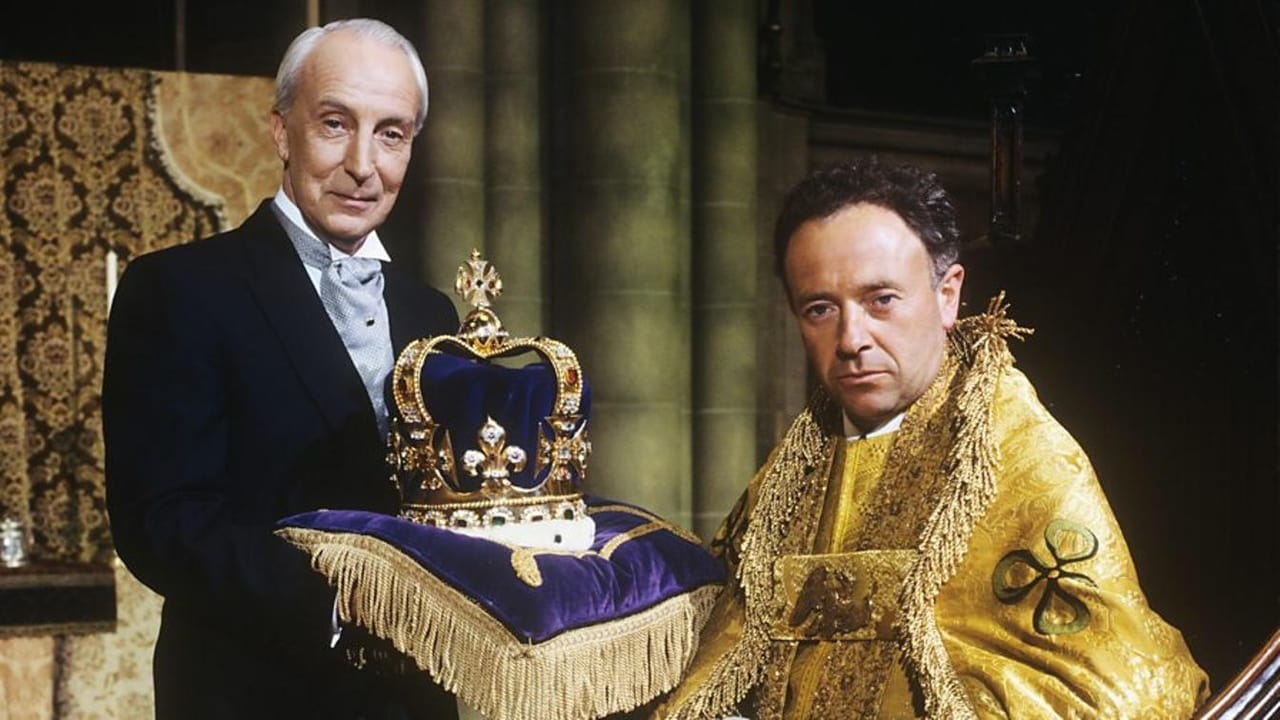
 AD
AD

